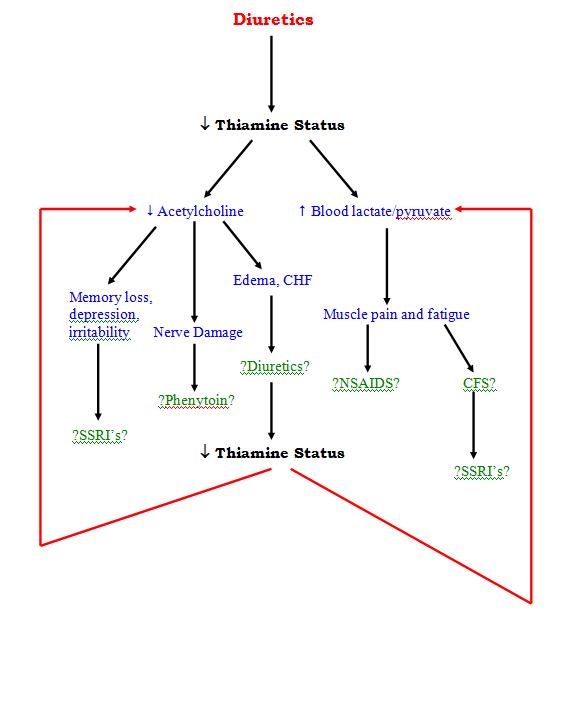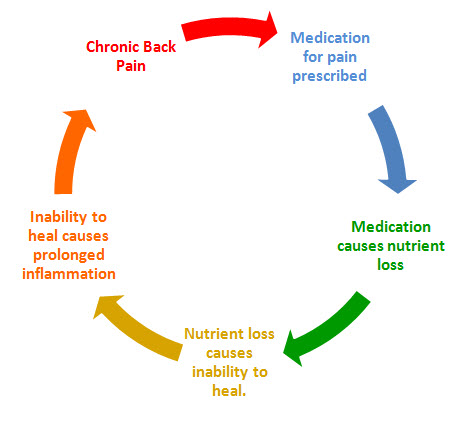Vitamin B1 (Thiamin)
Thiamin is a water soluble B vitamin. It is critical for proper nutrition. It aids in the production of energy in all tissues in the body but more is used in the heart and skeletal muscle. Additionally it is necessary for the body to produce the neurotransmitter (chemical used by the nervous system and brain) acetylcholine.
Signs & Symptoms of Vitamin B1 Nutrition Deficiency:
Congestive Heart Failure
Edema
Tachycardia (increased heart rate)
Loss of appetite
Depression
Anxiety
Memory loss
Neuropathy
Muscle wasting
Fatigue
Vitamin B1 has been shown to be beneficial in the following conditions:
Beri Beri (wet and dry – forms affect the nervous system and the heart)
Intestinal disease
Depression
Diabetes
Chronic Fatigue Syndrome
Fibromyalgia
Hypothyroid
Congestive heart failures
Drugs, medications, or additives that may deplete or interfere with Vitamin B1 metabolism:
Alcohol
Caffeine
Diuretics used to lower blood pressure
Seizure Medications
The Chart Below Illustrates Common Consequences of Deficiency:
**Key
SSRI’s = Selective serotonin reuptake inhibitors (meds used to treat depression – prozac, paxil, zoloft, etc)
NSAIDS – Non steroidal inflammatory drugs (aspirin, ibuprofen, etc)
CFS – Chronic fatigue syndrome
CHF – Congestive heart failure
Laboratory testing for Vitamin B1:
Erythrocyte Transketolase Activity (ETKA)
Food Sources:
Pork, legumes, watermellon, green beans, asparagus, and organ meats and dairy products


















